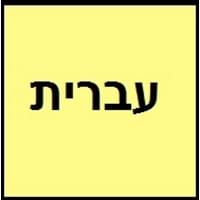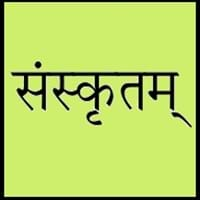Hebrew vs Sanskrit
National Language
Israel
India
Second Language
Israel
Not spoken in any of the countries
Speaking Continents
Africa, Asia, Europe
Asia
Minority Language
Poland
Not spoken in any of the countries
Regulated By
Academy of the Hebrew Language
Not Available
Interesting Facts
- The original language of Bible is Hebrew.
- The men and women use different verbs in hebrew language.
- Sanskrit language has highest number of vocabularies than any other language.
- Sanskrit Language has proved to help in speech therapy, also it increases concentration and helps to learn maths and science better.
Similar To
Arabic and Aramaic languages
Old German Language
Derived From
Aramaic Language
Prakrit Language
Alphabets in
Hebrew-Alphabets.jpg#200
Sanskrit-Alphabets.jpg#200
Scripts
Hebrew
Devanagari
Writing Direction
Right-To-Left, Horizontal
Left-To-Right, Horizontal
Hello
שלום (Shalom)
नमस्कारः (namaskāraḥ)
Thank You
תודה (Toda)
धन्यवादाः (dhanyawādāh)
How Are You?
מה שלומך? (ma shlomxa)
कथमस्ति भवान् (kathamasti bhawān)
Good Night
לילה טוב (Laila tov)
शुभरात्री (shubharātrī)
Good Evening
ערב טוב (Erev tov)
शुभः सायंकालः
Good Afternoon
אחר צהריים טובים (Achar tzahara'im tovim)
शुभ दुपार
Good Morning
בוקר טוב (Boker tov)
सुप्रभातम् (suprabhātam)
Please
בבקשה (bevekshah)
कृपया (kripayā)
Sorry
סליחה! (Slicha)
कृपया क्षम्यताम् (kripayā kshamyatām)
Bye
להתראות (Lehitraot)
पुनः मिलामः(punah milamah)
I Love You
אני אוהבת אותך (Ani ohevet otcha)
त्वामनुरजामि (twāmanurajāmi)
Excuse Me
בבקשה!
कृपया क्षम्यताम् (kripayā kshamyatām)
Dialect 1
Ashkenazi Hebrew
Not present
Where They Speak
Israel
Not Available
Dialect 2
Samaritan Hebrew
Not present
Where They Speak
Israel, Palestine
Not Available
Dialect 3
Yemenite Hebrew
Not present
Where They Speak
Israel
Not Available
Speaking Population
Not Available
Not Available
Second Language Speakers
Not Available
Native Name
עברית / עִבְרִית (ivrit)
संस्कृतम् (saṃskṛtam)
Alternative Names
Israeli, Ivrit
Not Available
French Name
hébreu
sanskrit
German Name
Hebräisch
Sanskrit
Pronunciation
[(ʔ)ivˈʁit] - [(ʔ)ivˈɾit]
[səmskr̩t̪əm]
Ethnicity
Not Available
Not Available
Language Family
Afro-Asiatic Family
Indo-European Family
Subgroup
Semitic
Indo-Iranian
Early Forms
Biblical Hebrew, Mishnaic Hebrew, Medieval Hebrew, Hebrew
Vedic Sanskrit
Standard Forms
Modern Hebrew
Sanskrit
Language Position
Not Available
Signed Forms
Signed Hebrew
Not Available
Scope
Individual
Individual
ISO 639 6
Not Available
Not Available
Glottocode
hebr1246
sans1269
Linguasphere
12-AAB-a
No data available
Language Type
Living
Ancient
Language Linguistic Typology
Subject-Verb-Object, Verb-Subject-Object
Subject-Object-Verb
Language Morphological Typology
Fusional, Synthetic
Synthetic
Hebrew and Sanskrit Language History
Comparison of Hebrew vs Sanskrit language history gives us differences between origin of Hebrew and Sanskrit language. History of Hebrew language states that this language originated in 1000 BC whereas history of Sanskrit language states that this language originated in 2000 B.C.. Family of the language also forms a part of history of that language. More on language families of these languages can be found out on Hebrew and Sanskrit Language History.
Hebrew and Sanskrit Greetings
People around the world use different languages to interact with each other. Even if we cannot communicate fluently in any language, it will always be beneficial to know about some of the common greetings or phrases from that language. This is where Hebrew and Sanskrit greetings helps you to understand basic phrases in Hebrew and Sanskrit language. Hebrew word for "Hello" is שלום (Shalom) or Sanskrit word for "Thank You" is धन्यवादाः (dhanyawādāh). Find more of such common Hebrew Greetings and Sanskrit Greetings. These greetings will help you to be more confident when conversing with natives that speak these languages.
Hebrew vs Sanskrit Difficulty
The Hebrew vs Sanskrit difficulty level basically depends on the number of Hebrew Alphabets and Sanskrit Alphabets. Also the number of vowels and consonants in the language plays an important role in deciding the difficulty level of that language. The important points to be considered when we compare Hebrew and Sanskrit are the origin, speaking countries, language family, different greetings, speaking population of these languages. Want to know in Hebrew and Sanskrit, which language is harder to learn? Time required to learn Hebrew is 44 weeks while to learn Sanskrit time required is 20 weeks.





